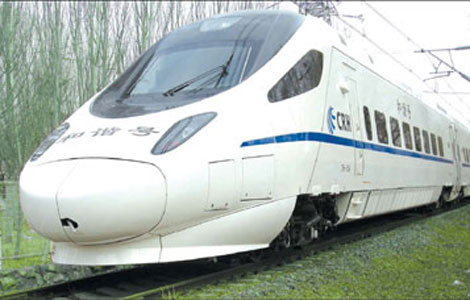Politics
NATO supplies halted by Pakistan protest
Updated: 2011-04-24 09:47
(Agencies)
PESHAWAR, Pakistan - Pakistan halted NATO supply shipments to Afghanistan on Saturday after thousands of protesters rallied on the main road to the border to demand Washington stop firing missiles against militants sheltering inside the country.
The stoppage was temporary and the demonstration was held by a small political party seeking a populist boost, but the events highlighted the vulnerability of the supply route running through Pakistan at a time of tensions between Washington and Islamabad.
Much of the non-lethal supplies for foreign troops in landlocked Afghanistan come through Pakistan after arriving at the port in the southern city of Karachi. Militants often attack the convoys, and last September Pakistan closed the border for 20 days to protest a NATO helicopter strike inside its borders.
NATO commanders said then that the halt did not affect the war effort. The alliance has been opening new routes into Afghanistan from the north in recent years to try to reduce its dependancy on the Pakistan route, which gives Islamabad leverage when negotiating with the West.
Police officer Khurshid Khan said supplies had been stopped until Monday morning because of the protest.
The demonstration was held by the political party of Imran Khan, a former captain of Pakistan's cricket team. He has called for peace talks with the Pakistani Taliban and has long opposed the drone strikes in the border region. Last year, there were more than 100 such attacks, the most yet.
"We will continue our campaign until America stops killing our innocent people," he told around 3,000 protesters on the outskirts of Peshawar, around 35 miles (57 kilometers) from the Afghan border. "It is our start against American slavery. The people have risen up. They will neither let the corrupt leaders nor their American bosses stay in this country."
Khan also offered his services to act as mediator for talks with militants.
"I am ready to broker," he said, referring to any possible peace talks with the Pakistani Taliban, adding that if America was ready to do that in Afghanistan why wouldn't Pakistan do it here.
Tensions between Pakistan and the United States have been brewing since the arrest in January of a CIA contractor for killing two Pakistanis. The incident infuriated Pakistan's army, which was forced to answer embarrassing questions about why an armed American was traveling apparently freely in the country.
Since then, the army and the government has taken a tough line on drone strikes, which they had quietly tolerated in the past and at the same time publicly complained about. That policy had allowed them to be insulated from some of the anti-American sentiment that runs strong in the country.
Earlier Saturday, Pakistani army chief Gen. Ashfaq Parvez Kayani said his force had broken "the backbone" of Islamist militants in the country, in an apparent attempt to counter American criticism of its progress in confronting extremism.
But hours later, a suicide bomber on foot detonated his explosives in a convoy of soldiers and elders of an anti-Taliban militia in the town of Salarzai in Bajur tribal region. Four militiamen and a paramilitary soldier were killed, said police official Fazal Rabbi.
The military in late 2009 had declared victory over insurgents in the area.
Specials

Urban breathing space
City park at heart of industrial hub positions itself as top tourism attraction

On a roll
Auto hub Changchun also sets its sight on taking lead in railway sector

The stage is set
The Edinburgh International Festival will have a Chinese flavor this year.